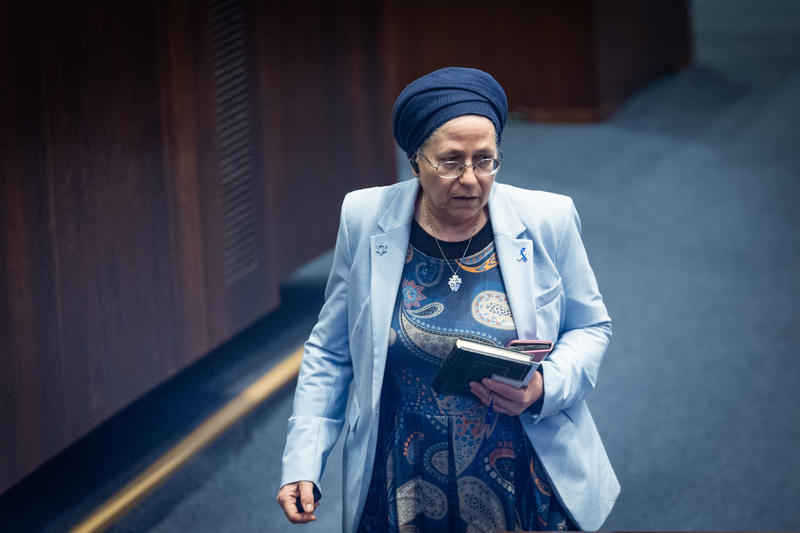
Settlement Minister Orit Struk said in a closed-door conversation today (Sunday) that she is considering resigning from the government following the massive aid flow to the Gaza Strip in the past 24 hours.
Fast track or regular track: will you decide how to receive your money?
The minister said in a conversation, a recording of which was obtained by Ariel Kahane of Israel Hayom: "What is happening now in Gaza is very difficult. In practice, there is no surrender document, but it looks like surrender. Our surrender, Israel's, yes? It's simply terrible and horrible,"
She explained that Israel does not receive any compensation for the steps it takes, which in fact help Hamas: "I could understand those who say that in exchange for hostages you bring in humanitarian aid, or in exchange for hostages you give them a reprieve."
"Now it's not for anything. I can't understand it for myself. If the prime minister doesn't give me an explanation. Not an explanation - actions - that he's going to win. I have nothing to do there (in the government)."
From what she said to those who spoke to her, it seems that she is done with Strok leaving the government: "I have nothing to do and I say this with regret to you because you are wasting the next hour explaining to the irrelevant minister what you are doing.
"But I hope he will be able to convince me with actions that he is going for victory and not surrender. If it is surrender, we have nothing to look for there. We have always said that this is the red line. It is hard, it is a really hard morning."
"The way to enable moves"
Against the backdrop of harsh criticism on the right against the decision made by Netanyahu, together with a limited forum, on humanitarian corridors for bringing in aid and at the same time on airdropping aid into Gaza - sources involved in the process reject the accusations. In a conversation with 'Israel Hayom' they claim: This is the only way to allow the continuation of military moves against Hamas.
The same Israeli officials say that this is not just a response to the campaign - but to the situation on the ground that has been determined after two years of war.
In parallel with the decision on the humanitarian corridors and the slight increase in aid, Israel has been conducting a campaign since the weekend against the UN, which has refused to let hundreds of trucks in over the past few weeks. This "traffic jam" also, they say, began to loosen over the weekend.
"When the IDF creates humanitarian corridors, it takes away from the UN the excuses under which they did not bring in the aid we approved," says an Israeli source.
According to him, "The rush for aid indicates that there is a shortage, as does the rise in prices, as well as the fact that American society does not provide a response to all needs. There is a real need and also needs that stem from the system of consciousness and the political campaign, but there was no concession here on Israel's principled position in the war."
A source close to Netanyahu says: "Israel has always acted to prevent famine in Gaza, and so it is today, responding to the need to avoid a situation of famine."